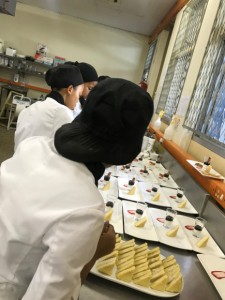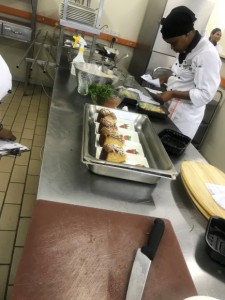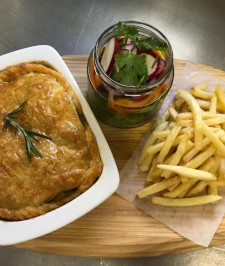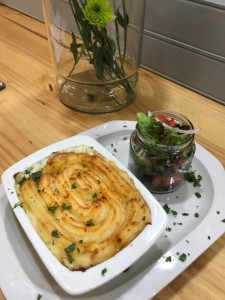Departments Applied Sciences
-
State of the Faculty Address SOFA
FMS – Women’s Month Special Spotlight Interviews 2022
Follow Us On Social Media
 DUT Faculty of Applied Science
DUT Faculty of Applied Science
 @dutfas
@dutfas
 DUT Faculty of Applied Sciences
DUT Faculty of Applied Sciences
 Faculty Of Applied Sciences
Faculty Of Applied Sciences
 @dut_facultyofappliedsciences
@dut_facultyofappliedsciences
Welcome to the Department of Consumer Sciences Food and Nutrition
Welcome to the Department of Food and Nutrition: Consumer Sciences. The discipline of Consumer Science: Food and Nutrition assists consumers in using resources to make healthy lifestyle choices. It highlights the need for a healthy diet and good quality, safe food. To produce active and reflective graduates with a sound knowledge of food and nutrition, the programme integrates the study fields of food and nutrition, whilst academic learning is complemented by the development of culinary skills, ethics, effective communication and critical citizenry. Students are required to complete a three month work integrated learning placement during the third year of study. This enables the integration and application of knowledge, as well as skill and value development in an authentic setting. Further study would enable graduates to perform as a food researcher and developer, manage a food operation or market food products in the retail and production industries. There is further scope to conduct research in the food and consumer science fields to enhance the quality of life of the consumer.
“Leading in applied consumer science food and nutrition education” “ Develop adaptive graduates in consumer science food and nutrition to impact society” We initiate new and exciting ideas in everything we do We accept responsibility for our actions and commit to continuously improve everything we do We work as a team and partner with others to achieve our goals We strive to be the best and approach every challenge with a determination to succeed
A qualified learner will have: Food and Nutrition Consumer Sciences Handbook
UNIVERSITY COLLABORATIONS National Collaboration: International Collaboration: Texas Tech University, USA: National EFBDGs development INDUSTRY COLLABORATIONS Woolworths Advance Diploma In Food and Nutrition Woolworths SA tasked Advance Diploma students to come up with a product that fulfils the below criteria, all product categories are in scope from fresh product to long life. Students were asked not to be restricted in their thinking, the target audience are people wanting to lead a healthy lifestyle and are planet conscious. They are often under time constraints so the product must be convenient. Serving size For 1 as a meal and or a snack Considerations • Sustainable – For both the planet and me Play back and evaluation by Woolworths On the day we will need to have full sight of final costings, full calculated nutritional analysis, packaging, and product positioning. We will be assessing you on answering to the brief and scoring your product on (out of 10) • Visual appeal Prizes will be awarded to the top three recipes. IMBO- National brands IMBO provided ingredients to students to conduct recipe development. • Recipe development – according to the IMBO guidelines Two recipes per student; At the end of the term, we will reward the students as follows, within the R10,000 budget approved: • Top student R4,000
The department is involved with Community Engagement in various forms including Community Based Participatory Research, service learning and community service. Some of the projects include: The engagement is based on a participatory approach and the interventions planned with the centres are based on the Integrated Nutrition Program (INP) formulated by the Department of Health (DoH) which aims to address malnutrition through an integrated and focused approach. At present, these interventions involve activities coordinated by the DUT department representative and the residential care settings’ managers. These activities are: nutrition education and skills training of both the Child and Youth Care workers and children. The project’s focus is specifically on CYCWs empowerment to care for these children in the best possible way. The above-mentioned activities also enable the staff in the department and students to directly engage with the CYCWs and children about their food and nutrition concerns, needs and issues. It facilitates a substantive understanding of social problems amongst our students and enables them to develop their civic and leadership skills so that they can become agents for positive social change. Beneficiaries: Child and Youth Care Workers at Child and Youth Care Centres Children: aged 0 – 18 years DUT students have over the past few years been involved with the Kenneth Gardens community, through community service learning projects. Here students visiting the clinic get advice on healthy eating and nutrition. This service compliments the helath clinic services which run daily on the Steve Biko Campus at DUT. Beneficiaries: DUT students
For the back of house practical component of the subject Food Production and Service Operation 2nd year Consumer Science Food and Nutrition students plan and prepare a range of menu items, on a large scale; to suit a target market. The planning includes management functions to complete costing, calculate profitability, distribute workload, problem solve, time management and optimise team dynamics. The need for innovation, food trends, hygiene and safety along with attention to detail, is emphasized.
Facebook: DUT-Food & Nutrition Instagram: @dutfoodandnutrition LinkedIn: DUT Food and Nutrition Consumer ScienceWelcome
About Us
Vision
Mission
Values
Courses
The qualities required of you for this programme:
Employment opportunities are in a variety of roles:
Programmes offered by the department
Entrance Requirements
Graduates of the Diploma in Consumer Sciences in Food and Nutrition will be competent in the application of scientific based food and nutrition knowledge and culinary skills in a range of work activities. These include fresh product and recipe development; food retail; food production and foodservice; and nutrition advising; with the aim of improving consumer well-being. This qualification is semesterised and offered through a three-year programme.
Entrance Requirements
Doctor of Food and Nutrition Entrance Requirements
Respond to the needs of business and industry
Respond to the needs of consumersCollaboration
Munster University of Applied Science, Germany: staff and student exchange
Hamburg University of Applied Science, Germany: COIL, visiting professors
Hague University of Applied Science: COIL
Amsterdam University of Applied Science: COIL
Nasseau Community College, New York: COIL
• Accessible and locally inspired
• Locally sourced ingredients
• Healthy – Think about what the product will provide for me head, heart and gut
• Nutrient dense
• Plant forward – use of fruits, vegetables, pulses, good carbs and oils
• Affordable – Good value
• Clean label – no hidden nasties
• Mindful of every ingredient
• Processing techniques
• Zero waste
• Balance (Taste and Flavour)
• Texture & Mouthfeel
• Flavour intensity
• Typicity
• Photography – as per IMBO brief.
• Research trends in the legume & dried vegetable field (SA). Analyse competitor products and recipes & conduct basic market surveys;
• Social media postings by students – as allowed #IMBObeans #ThinkIMBOthinkamazing #IMBOnourish # also themselves & DUT.
• 2nd R3,000
• 3rd R2,000
• 4th R1,000Community Engagement
Sisonke Siyaphambili (Child Welfare Durban and District)
Isolempilo Health Clinic
Research
Projects and Grants
Rendezvous
Staff
Contacts

Head of Department: Dr Heleen Grobbelaar
Tel: 031 373 2328
Email: heleeng@dut.ac.za
Campus: Steve Biko Campus
Qualification & Institution: PhD: Food and Nutrition, Durban University of Technology
Area of Expertise: Community Nutrition and Community Based Participatory Research

Secretary: Miss Noxolo Blose
Tel: 031 373 2322
Email: noxolob@dut.ac.za
Campus: Steve Biko Campus
Qualification & Institution: Advanced Diploma in Office Management and Technology, Durban University of Technology
Area of Expertise: Office AdministrationFollow us on Social Media





